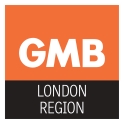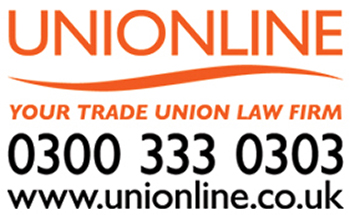COVID 19 Return to Work Advice for GMB London Region Members

COVID 19 Return to Work Advice for GMB London Region Members
Working and returning to work under Covid-19
Many GMB London Region Members will have already been asked, or may soon be asked to return to work. We understand that this may be worrying, therefore we have put together a short briefing about health and safety when returning to work.
What should happen before I return to work?
Employers must carry out a risk assessment, looking specifically at risk of exposure to Covid-19, before anyone returns to work. They must use this to take steps to reduce the risk of employees catching this virus to as low as possible. Risk assessments must be carried out by a ‘competent’ person – someone who knows and understands both the workplace and the work.
In GMB recognised workplaces, we expect Safety Reps to be consulted on any risk assessment carried out. Examples of steps that can be used to reduce COVID 19 risk are:
- Reducing the number of colleagues working together on the same shift
- Putting measures in place to allow a 2 metre distance between colleagues, e.g. floor markings and taped off workstations
- Adding extra hygiene facilities such as hand sanitiser stations
- Keeping doors open where safe to do so
- Staggering start, break and finish times
- Installing screens and barriers
- Increased and more thorough cleaning regime
- Providing PPE for job roles where workers have to be less than 2 metres apart
These measures must be put in place and tested before workers return to the workplace.
What measures should my employer consider to keep us safe at work?
Anyone who meets one of the following criteria should not come to work:
- Has a high temperature (37.8oc), a new persistent cough, or has lost their sense of taste or smell must follow the guidance on self-isolation.
- Is an extremely vulnerable person who has received a letter from the NHS and told to follow shielding procedures (until they have been told that it is now save for them to return).
Any worker who is in the following categories should have a personal risk assessment performed, to determine whether specific measures are required.
- Is a vulnerable person (over 70 years old, has an underlying health condition, clinical condition, disability or are pregnant)
- Is living with someone in self-isolation or a vulnerable / extremely vulnerable person
In addition to this, risk assessments should be carried out to see if additional measures are needed to protect BAME workers.
Procedure if Someone Falls ill
If someone develops a high temperature or a persistent cough while at work, they should:
- Return home immediately
- Avoid touching anything
- If available, put a face mask on to reduce the risk of transmission
- Cough or sneeze into a tissue and put it in a bin, or if they do not have tissues, cough and sneeze into the crook of their elbow.
They must then follow the current guidance on self-isolation and not return to work until their period of self-isolation has been completed.
Travel to Work
Wherever possible workers should travel alone using their own transport and employers need to consider:
- Parking arrangements for additional cars and bicycles
- Other means of transport to avoid public transport e.g. cycling
- Providing hand cleaning facilities at entrances and exits. This should be soap and water wherever possible or hand sanitiser if water is not available
- How someone taken ill would get home.
Site Meetings
- Only absolutely necessary meeting participants should attend
- Attendees should be two metres apart from each other
- Rooms should be well ventilated / windows opened to allow fresh air circulation
- Consider holding meetings in open areas where possible.
Cleaning
- Enhanced cleaning procedures should be in place across the site, particularly in communal areas and at touch points including:
- Taps and washing facilities
- Toilet flush and seats
- Door handles and push plates
- Hand rails on staircases and corridors
- Machinery and equipment controls
- Food preparation and eating surfaces
- Telephone equipment
- Key boards, photocopiers and other office equipment
- Lift and hoist controls
- Rubbish collection and storage points should be increased and emptied regularly throughout the day and at the end of each day.
How can workers’ voices be heard?
The Safety Reps and Safety Committees Regulations 1977 (SRSC) state that Safety reps should be involved in the process of risk assessment from the start. The SRSC regs are sometimes referred to as the ‘Brown Book’. These regulations also give safety reps the right to carry out inspections, attend safety committees and then report back to colleagues. See our checklist to support you through the risk assessment process here: https://www.gmb.org.uk/support/coronavirus/make-work-safe/risk-assessment-checklist
For more information on Coronavirus and your return to work, please visit the GMB Coronavirus hub - https://www.gmb.org.uk/support/coronavirus
If you should need further advice, please do not hesitate to contact the GMB London Region Health & Safety Officer Shaun Graham, shaun.graham@gmb.org.uk or call 07885 706 556


